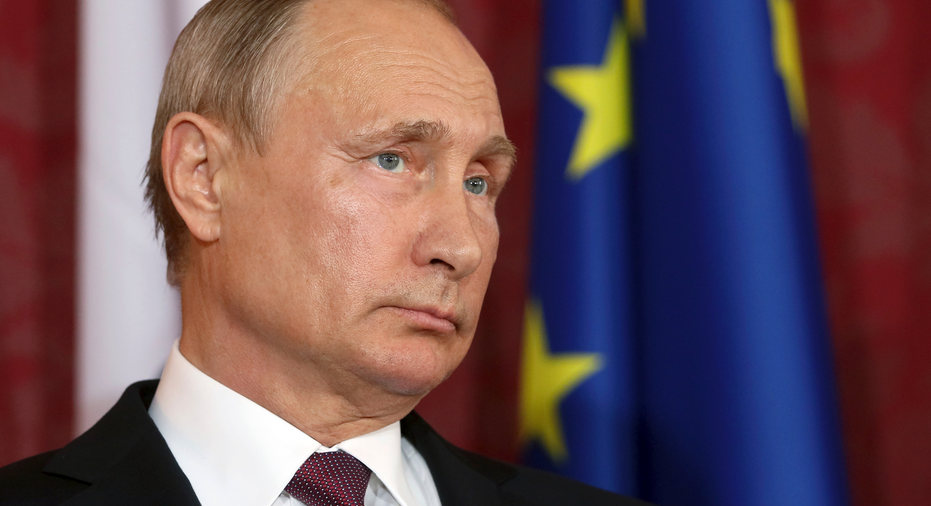Putin in Austria: Lifting Russia sanctions would benefit all

VIENNA – Western sanctions against Russia haven't worked and both Moscow and the West would benefit from lifting them, Russian President Vladimir Putin declared Tuesday as he visited Austria — one of the European Union's more Moscow-friendly members.
Putin, making his first foreign trip since being sworn in for a fourth term, said the restrictions are "harmful for everyone — those who initiated them and those who are targeted by them."
The United States, the European Union and other Western allies imposed a slew of sanctions against Moscow over its 2014 annexation of Ukraine's Crimean Peninsula and its support for separatists in eastern Ukraine who are fighting the government.
Coupled with a drop in oil prices, the sanctions contributed to Russia's two-year recession.
The Russian economy has rebounded, however, and Putin emphasized that lifting the sanctions would answer common interests. He said that both Russia and the EU would benefit from resuming full-scale cooperation.
Putin spoke after meeting liberal President Alexander Van der Bellen. He had meetings later Tuesday with conservative Chancellor Sebastian Kurz and Vice Chancellor Heinz-Christian Strache, whose nationalist Freedom Party entered the government in December as the junior coalition partner.
Over the weekend, Strache — whose party has ties with the main Kremlin party, United Russia — called for the EU to lift sanctions against Russia.
Van der Bellen said Austria "has always striven to contribute to reducing tensions, and we will do so now and in the future." But he stressed that, on sanctions, "Austria acts and will act in harmony with the European Union."
Unlike many other EU countries, Austria didn't expel Russian diplomats over the nerve agent poisoning in Britain earlier this year of former Russian spy Sergei Skripal and his daughter.
Austria will take over the 28-nation EU's rotating presidency for six months in July.
Putin's sixth official visit to traditionally neutral Austria marks the 50th anniversary of the start of Soviet gas deliveries to the country.
Austria's OMV is now among European companies involved in the planned Nord Stream 2 pipeline that would double the amount of gas Russia can send directly to Germany, skirting transit countries such as Ukraine — a project opposed by the U.S. and some other EU members.
Van der Bellen said some U.S. politicians claim that the EU is too dependent on Russian gas, but overlook the fact that American liquefied gas is much more expensive.
"Under such circumstances, it makes little sense — viewed from a purely economic point of view — to replace Russian gas with American liquefied gas," he told reporters.
In Warsaw on Tuesday, Poland's president expressed his country's disapproval of the planned Russian-German gas pipeline to the visiting German president.
Polish President Andrzej Duda said at a joint news conference with Frank-Walter Steinmeier that he believes Nord Stream 2 would undermine the security of central and eastern Europe.
The pipeline project has become a deeply divisive issue in Europe since it deliberately skirts eastern nations like Poland and Ukraine.
___
Geir Moulson in Berlin contributed to this report.



















